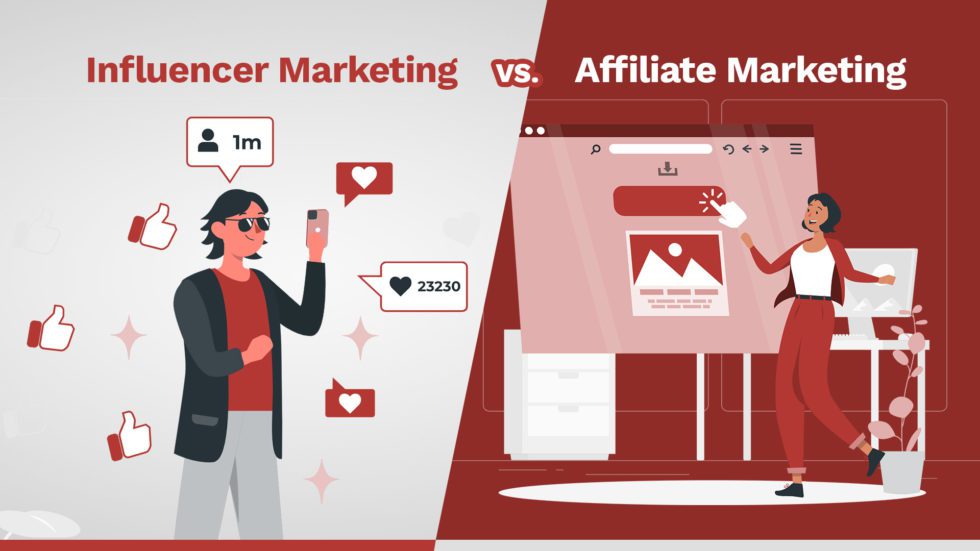
Influencer Marketing Vs. Affiliate Marketing: Which One is Best for Your Business
Influencer marketing and affiliate marketing are distinct strategies for promoting products or services online, each with its unique characteristics.
Influencer Marketing:
- Involves partnering with influential individuals, often with a substantial social media following, to promote your brand or product.
- Can effectively reach a broad audience when the right influencers are selected, creating brand awareness and potentially increasing sales.
- Requires careful consideration of influencers' alignment with your brand and target audience.
Affiliate Marketing:
- Focuses on promoting products or services through third-party websites or affiliates who earn commissions for generating sales.
- Provides an effective means for businesses to reach new customers and boost sales.
- Demands the selection of the right affiliates and the creation of high-quality, persuasive content to encourage clicks and purchases.
Influencer Marketing Strategy:
- Define your campaign goals, such as increasing brand awareness or driving website traffic.
- Identify suitable influencers whose following aligns with your brand and values.
- Contact selected influencers, outline your campaign details, and negotiate terms.
- Launch the campaign and track results.
Affiliate Marketing Strategy:
- Research the products and company you'll promote to understand customer needs.
- Create content (e.g., blog posts, social media content, videos) that promotes products with affiliate links.
- Build an audience through platforms like blogs, websites, or social media.
- Promote products or services and earn commissions on sales.
- Continuously track and analyze results to refine your strategy.
Differences Between Affiliate and Influencer Marketing:
- Affiliate marketing often leverages social media engagement for product promotion, while influencer marketing relies heavily on platforms like Instagram and YouTube.
- Influencer marketing typically involves influencers charging for their posts, making it more expensive compared to affiliate marketing.
- Both strategies can be effective, but the choice depends on factors like budget, audience, and goals.
Pros and Cons of Affiliate Marketing:
- Pros include passive income potential, financial stability, and expanding your network.
- Cons include time and effort requirements, unpredictability, and strict company rules.
Pros and Cons of Influencer Marketing:
- Pros include reaching a large audience, building trust with influencers, and cost-effectiveness.
- Cons include high costs, time consumption, and potential brand reputation risks.
In conclusion, understanding the differences and considering the pros and cons of these marketing strategies is crucial for businesses to determine which approach aligns best with their goals, budget, and target audience. Both influencer marketing and affiliate marketing can be effective methods to promote products or services online.
Full article here: https://www.legacymarketing.com/blog/influencer-marketing-vs-affiliate-marketing/



